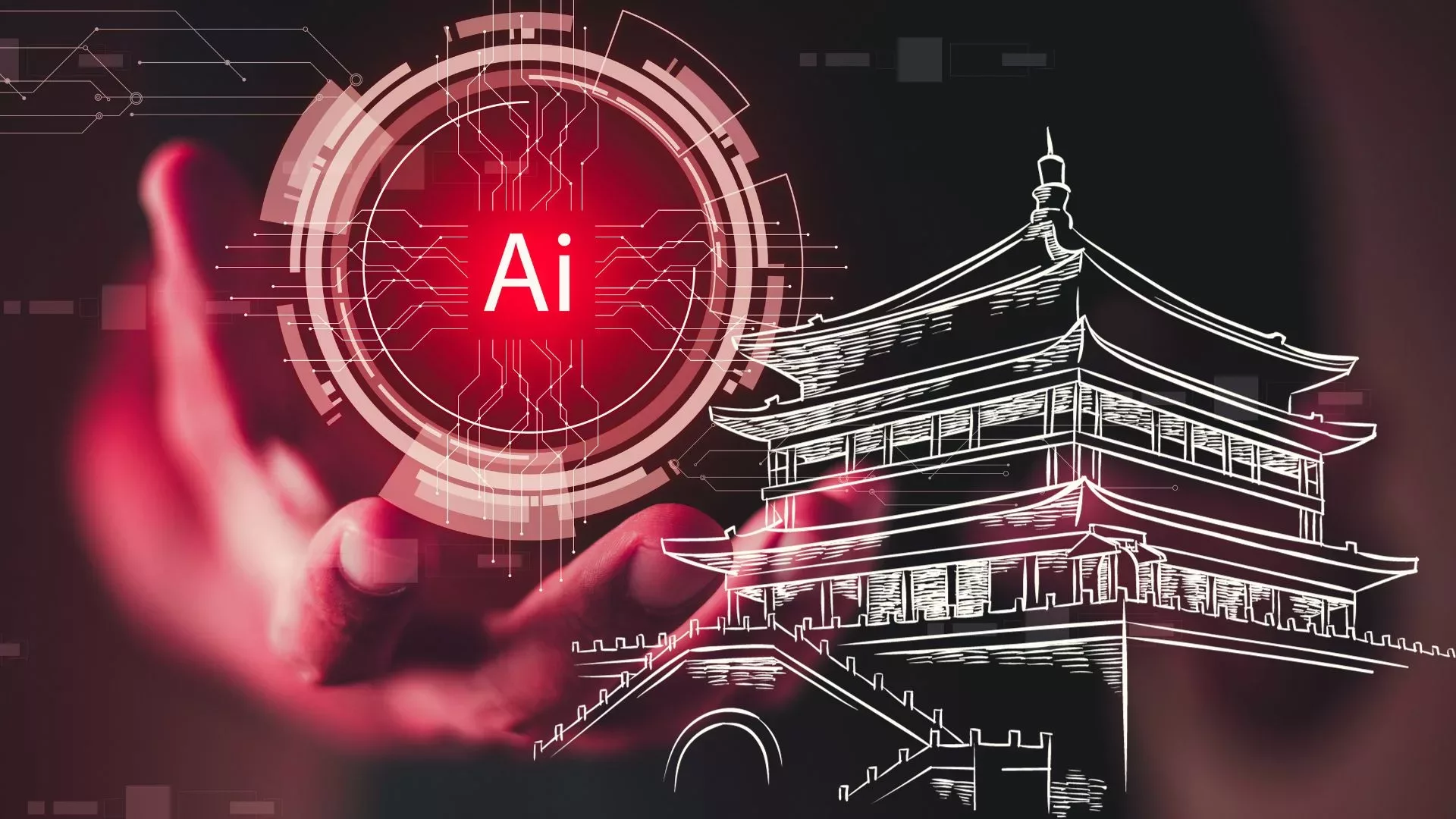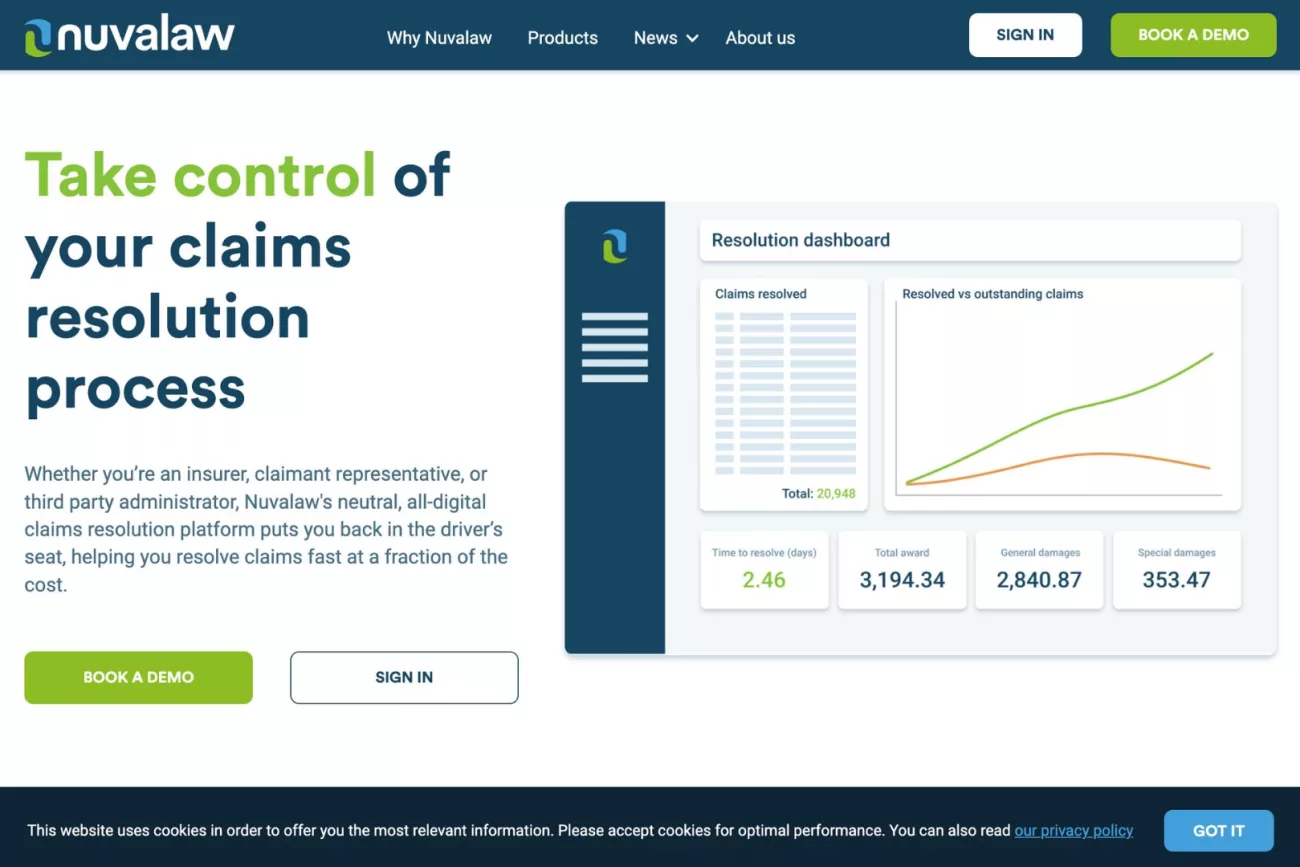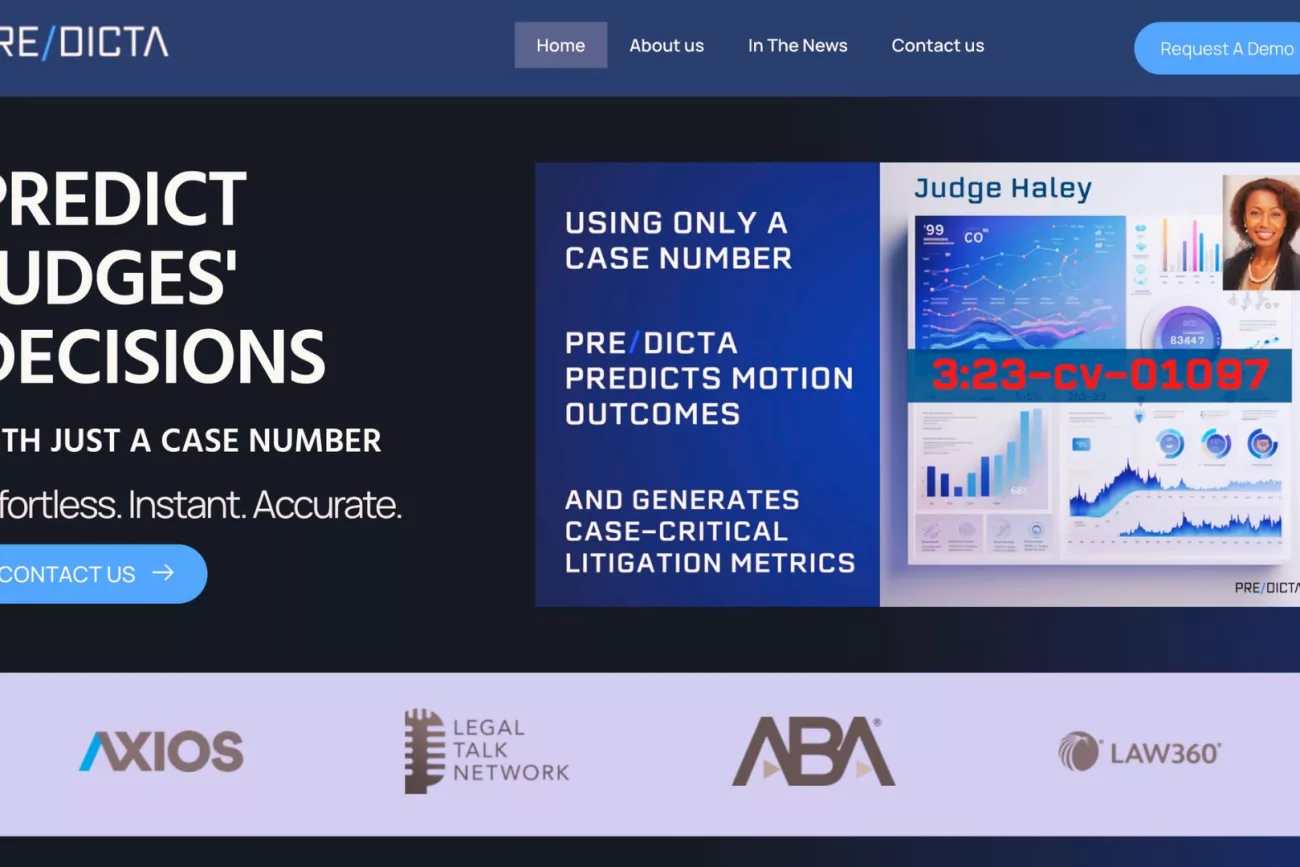
Key Points
- Technological Overhaul: China is revolutionizing its legal system with AI, including robot lawyers and virtual courtrooms, challenging traditional legal practices.
- Global Legal Landscape Shift: This move signals a potential global shift, with China leading in legal tech innovations and patent filings.
- Ethical and Privacy Concerns: The integration of AI in legal processes raises significant ethical, privacy, and justice delivery concerns.
- Future of Legal Profession: China’s approach prompts a global discussion on the future role of lawyers and the balance between technology and traditional legal ethics.
Lawyer for Wrongful Death: Your Comprehensive Guide
Mike Ruggles Founder & CEO Instagram Linkedin Follow me on Instagram & LinkedIn for exclusive
Solo Law Practice: A Legal Rollercoaster Worth Riding? 🎢👩⚖️
Unleash the debate on going solo in the legal realm! Dive into the paradoxes of
Meta’s AI Gamble: Chaos or Progress?
Meta’s groundbreaking decision to make its AI technology open source could shift power dynamics in
Breaking News: China’s Courts Go High-Tech with Real Legal Robots and a Monopoly on Legal Tech Patents!
These groundbreaking technologies aren’t just concepts; they’ve been actively transforming the Chinese justice system for over half a decade.
Courting Controversy: China’s Legal Tech Revolution
Welcome to the digital courtroom of the future, where AI judges rule and virtual hearings are the norm. It’s not a scene from a sci-fi movie; it’s today’s China, where the legal landscape is undergoing a seismic shift, thanks to groundbreaking advances in legal technology.
In this provocative exploration, we’ll dive into the world of robotic lawyers, online courtrooms, and AI-powered legal services that are not just transforming Chinese justice but are also challenging global legal norms. From the dizzying heights of China’s patent prowess to the ethical mazes of AI in sentencing, this discussion is more than just legal jargon—it’s a front-row seat to the future of law.
China’s Audacious Play: Legal Robots on the Bench?
Expanding the Scene: In the heart of China’s tech-driven judicial system, you witness a paradigm shift. Forget the traditional courtroom dramas; here, a robot, not a person, is your legal guide. These AI-powered ‘legal robots’ have been operational for more than five years, marking a significant departure from conventional legal practices.
The Robot Lawyer Phenomenon: More than just glorified assistants, these robots represent a seismic shift in legal counsel. They don’t just spit out generic advice; they analyze legal precedents, consider nuances of your case, and can draft a complaint tailored to your specific legal issue.
This isn’t just automation; it’s a whole new way of practicing law. For instance, in Shanghai’s internet courts, these robots have been successfully used to manage minor legal disputes, showcasing their practical application.
Controversial Take: The rise of AI in law brings us to a critical crossroads. Is the traditional lawyer a dying breed? In China, these robots are a pragmatic solution to managing a vast population’s legal needs, but globally, they represent a paradigm shift. Will other countries embrace this trend, or will the sanctity of the human legal mind prevail?
The debate is intensified by concerns over AI’s understanding of complex human emotions and ethical nuances. Can a robot truly grasp the moral complexities of justice, or are we stepping into a world where legal outcomes are determined by algorithms, lacking human empathy?
The Virtual Courtroom – A Glimpse into the Future or a Privacy Nightmare?
Immersive Experience: The concept of virtual courtrooms in China isn’t just a fleeting experiment; it’s a fully-fledged system. You’re no longer bound by physical courtrooms. Instead, you log in from the comfort of your home. This isn’t just about convenience; it’s a radical rethinking of how justice is delivered.
Stat Shock: The U.S. sees a staggering number of self-represented litigants in civil cases, highlighting a gap in legal accessibility. China’s approach, using AI and virtual courtrooms, could be a model for providing equitable legal access.
However, this comes with significant concerns. Are we trading off privacy for accessibility? Consider the case of virtual courts in Hangzhou, where traffic violation disputes are resolved online. While efficient, it raises questions about data security and personal privacy.
Debate Igniter: This technological leap challenges the very fabric of traditional justice systems. Are these virtual courtrooms heralding a new era of democratized justice, or are they a harbinger of a dystopian future where privacy is compromised? How do we balance the convenience of online courts with the need for a fair, transparent, and secure justice system?
The Patent Powerhouse: China’s Legal Tech Domination
Power Play in Patents: The sheer volume of legal tech patents filed by China is a testament to its ambition. It’s not merely about filing patents; it’s about signaling a strategic intent to dominate the legal tech landscape globally. This aggressive patent strategy is a key part of China’s larger goal to be at the forefront of technological innovation.
Provocative Perspective: The dual nature of China’s patent strategy is thought-provoking. On the one hand, it is a clear push towards technological innovation and leadership in legal tech. This is evident in the way Chinese companies like Alibaba and Tencent are integrating AI into legal services.
However, on the other hand, this surge is significantly propelled by government policies and incentives. It raises critical questions: Is this surge in patent filing a genuine indicator of innovation, or is it artificially inflated by state-driven ambitions?
Global Legal Tech Race: The implications of China’s dominance in legal tech patents are far-reaching. This isn’t just about patent numbers; it’s about setting the stage for the future of legal technology.
China’s approach could potentially reshape the global legal tech industry, influencing how legal services are delivered worldwide. For example, the AI-driven legal services in China, like AI judges, could set a precedent for the rest of the world.
The Ripple Effect: As China strides ahead, it’s essential to ponder the potential ripple effects. How will other nations respond? Will they ramp up their own legal tech innovations, or will they take a more cautious approach? This isn’t just a race for technological superiority; it’s a fundamental reshaping of the legal landscape.
The Controversial Question: The big question remains – is China’s patent dominance a true indicator of innovation and future leadership in legal tech, or is it an inflated bubble, more about quantity than quality? This debate is not just about the present; it’s about the future direction of legal tech and its global impact.
The Human Lawyer vs. The AI Advocate: A Duel for the Ages
The Legal Tech Landscape: While China embraces AI in the legal sector, the U.S. and other countries remain cautious. American legal frameworks, steeped in tradition, view legal tech, especially AI, with skepticism. This contrasts sharply with China’s approach, where legal tech is not just accepted but encouraged.
Hot Topic: This divergence raises a pivotal question: Should other nations follow China’s lead? The debate is not just about technology but about the fundamental nature of legal practice.
For example, in Beijing, AI assists in complex patent litigation cases, something that’s still a distant reality in the West. Is the West’s caution hindering the evolution of legal practice, or is it a necessary safeguard against the unchecked influence of AI?
Global Implications: The implications of this debate are far-reaching. If AI can deliver justice more efficiently, should traditional legal practices be overhauled?
However, there’s an underlying fear. Can AI truly replace the nuanced understanding and ethical reasoning of a human lawyer? The debate is not just legal; it’s philosophical, touching on the essence of justice and the role of technology in society.
Sentencing Software: The Corruption Detector or Orwellian Oversight?
AI in Sentencing: China’s use of sentencing recommendation software is a groundbreaking move. It’s designed not only to assist judges but also to flag sentences that deviate from the norm, potentially indicating corruption.
Polarizing Point: On one side, this is seen as a stride towards transparency and fairness in the judicial process. By standardizing sentences, the software aims to reduce corruption and bias. For instance, in a corruption case in Guangzhou, the software played a crucial role in determining the sentence, showcasing its potential in upholding justice.
The Flip Side: However, there’s a darker possibility. Such software could lead to an Orwellian system where every judicial decision is monitored and controlled. The loss of judicial discretion and the potential for misuse of data is a profound concern. Are we heading towards a future where justice is not just blind but also algorithmically predetermined?
Justice in the Age of AI: The Verdict is Yours”
So, what’s the verdict? Is China’s trailblazing journey into legal tech a blueprint for the world, or a cautionary tale of technology outrunning ethics? The answers are as complex as the questions.
From robot lawyers to AI judges, China’s legal tech revolution is not just reshaping the courtroom; it’s redefining the very essence of justice. As we stand at this legal crossroads, the global legal community faces a crucial choice: embrace the AI-driven future or cling to the traditional gavels of the past.
Call to Action: Join the Legal Tech Debate!
Don’t just be a bystander in this legal revolution. Join the conversation, challenge the norms, and be a part of shaping the future of law.
Subscribe to our newsletter for the latest updates, insights, and debates on the intersection of technology and justice. Your voice matters in this pivotal dialogue. Click here, and let’s navigate the future of law, together! 🚀
Share this post
Frequently Asked Questions (FAQs)
Q: What is China's legal AI revolution?
A: China is integrating AI technology into its legal system, using robot lawyers and virtual courtrooms, leading a significant shift in legal practices.
Q: How does AI in legal systems affect traditional lawyering?
A: AI technology in legal systems could potentially replace some functions of human lawyers, raising questions about the future role of legal professionals.
Q: Are virtual courtrooms in China affecting justice delivery?
A: Virtual courtrooms in China offer convenience and efficiency but raise concerns about privacy, data security, and the sanctity of the traditional courtroom experience.
Q: What does China's dominance in legal tech patents imply?
A: China’s surge in legal tech patents indicates its ambition to lead in legal technology innovation, though there are debates about the quality and impact of these patents.
Q: What are the ethical concerns with AI in sentencing?
A: AI in sentencing, while aiming for fairness and reducing corruption, raises issues about the loss of judicial discretion and potential for a surveillance state















